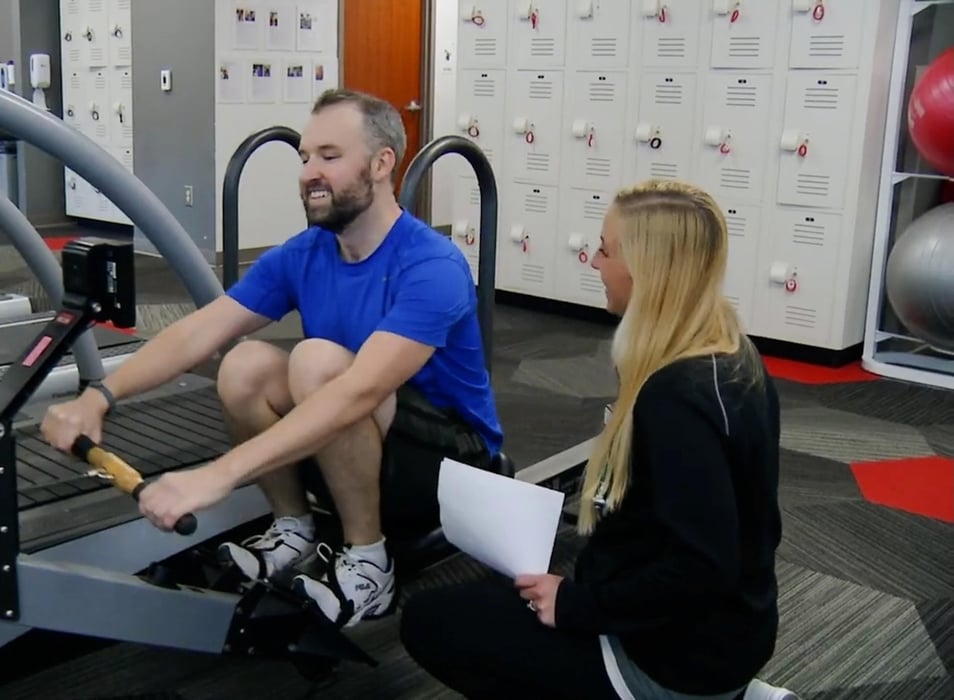Many Young Americans Don’t Realize Heart Attacks Can Hit Them Too: Poll

WEDNESDAY, Feb. 1, 2023 (HealthDay News) -- Dave Conway had a heart attack in 2018. He was only 30.
The Clintonville, Ohio, resident had been experiencing fatigue and shortness of breath, finally going to the emergency room with what he thought was pneumonia. Instead, he learned he’d had a “widowmaker” heart attack and a 100% blockage in a major artery.
“I thought people who had heart attacks or heart disease were older people who drink and smoke a lot and weigh much more than I did,” Conway said.
“Recovery has been really tough, but I’m willing to do whatever my doctors tell me is needed to keep my heart safe in the future,” he said in an Ohio State University news release.
Stories like Conway's are becoming more common, with studies showing heart attacks and stroke are on the rise among Americans younger than 40.
Certain healthy habits can help prevent heart problems -- but getting younger adults to accept their risks remains an obstacle.
“It is alarming that younger people don’t feel that they’re at risk for heart disease, but it’s not surprising,” said Dr. Laxmi Mehta, director of preventative cardiology and women’s cardiovascular health at the Ohio State Wexner Medical Center.
“Most young people think heart disease only happens in old people, but that’s not the case,” Mehta said in the release.
The medical center surveyed 2,000 Americans, finding that nearly half of those under age 45 believed they were not at risk for heart disease.
Conway himself waited days after symptoms to start seeking treatment, which is not uncommon. The survey found about 32% of Americans aren’t confident they would know if they were having a heart attack.
“If something suddenly seems new and it doesn’t make sense to you, seek medical attention. Don’t Google it to figure it out. Don’t ask somebody else. Let health care professionals decide if you’re having a heart attack or not,” Mehta said. “When it comes to a heart attack or stroke, every second counts. In fact, you shouldn’t even drive yourself to the hospital. Call an ambulance so lifesaving care can begin right away.”
To preserve your heart health, Mehta recommends following the American Heart Association’s Life’s Essential 8. This includes knowing your numbers for weight, blood pressure, cholesterol and blood sugar. Also important are good lifestyle habits like eating a healthy diet, quitting smoking and vaping, sleeping at least seven hours per night and getting 150 minutes of moderate-intensity aerobic exercise each week.
Also, see your primary care physician every year to stay ahead of any developing issues.
“Your doctor will screen for warning signs like high blood pressure and do blood work to track your cholesterol, so any changes over time can be flagged,” Mehta said. “They will also assess your risk for diabetes and screen for certain cancers and other diseases that put your future wellness at risk.”
More information
The U.S. Centers for Disease Control and Prevention has more on heart attack.
SOURCE: Ohio State University Wexner Medical Center, news release, Feb. 1, 2023
Related Posts
Scientists Use Stem Cells to Replicate Early Human Embryo
FRIDAY, June 30, 2023 (HealthDay News) – Scientists hope to learn more about the...
Unas imágenes horripilantes en las etiquetas de los refrescos podrían reducir el consumo
MIÉRCOLES, 2 de febrero de 2022 (HealthDay News) -- Unas imágenes de corazones...
One Key Factor Drives Weight Gain in College
WEDNESDAY, Sept. 1, 2021 (HealthDay News) -- College students often put on...
Abbott to Re-Open Baby Formula Plant on June 4
WEDNESDAY, May 25, 2022 (HealthDay News) -- Beginning June 4, Abbott Nutrition...
